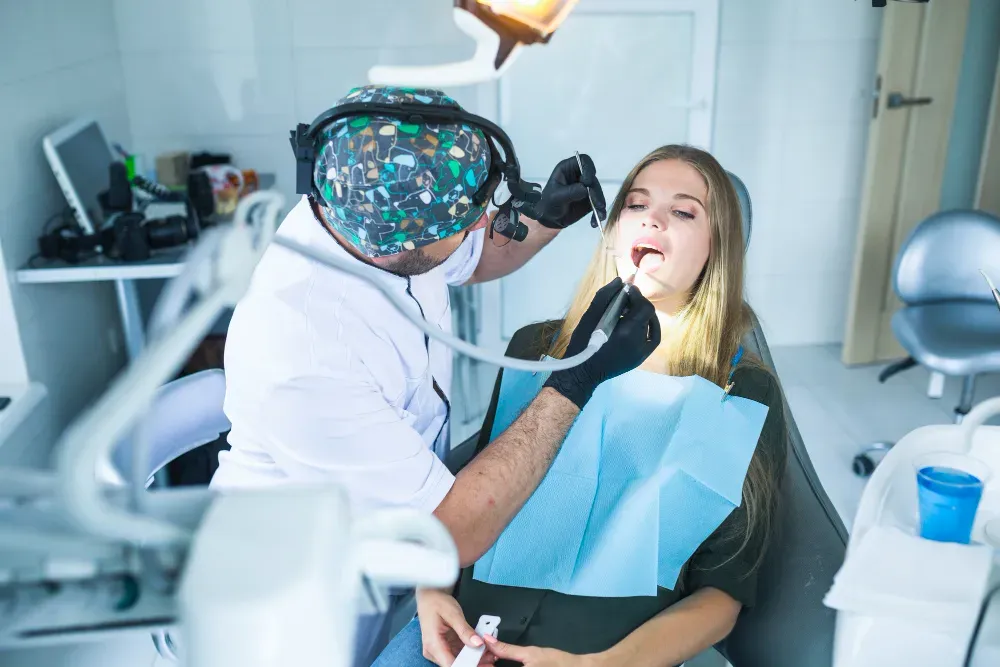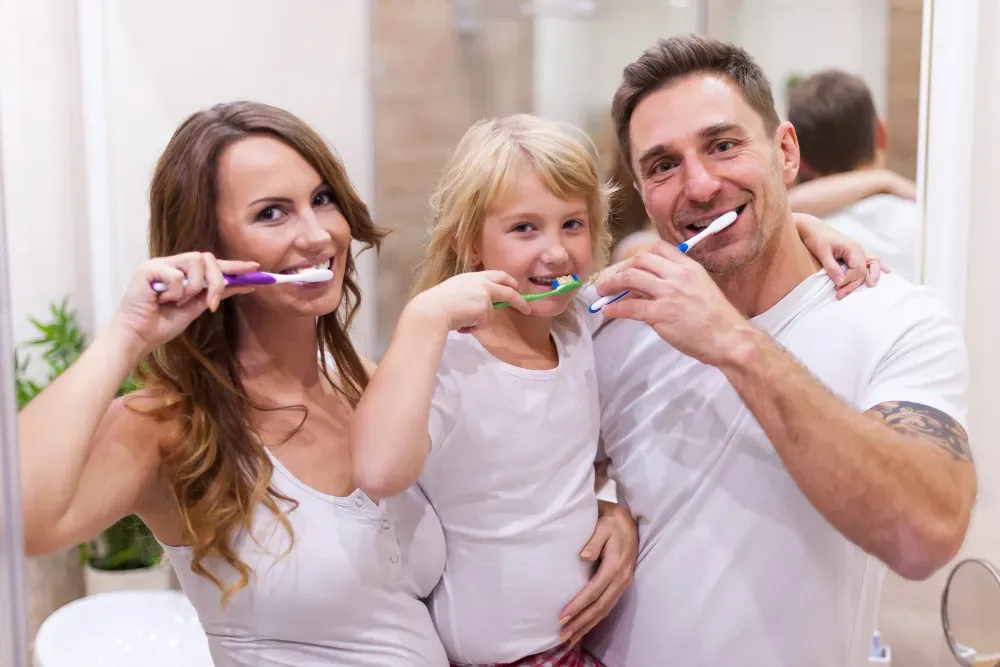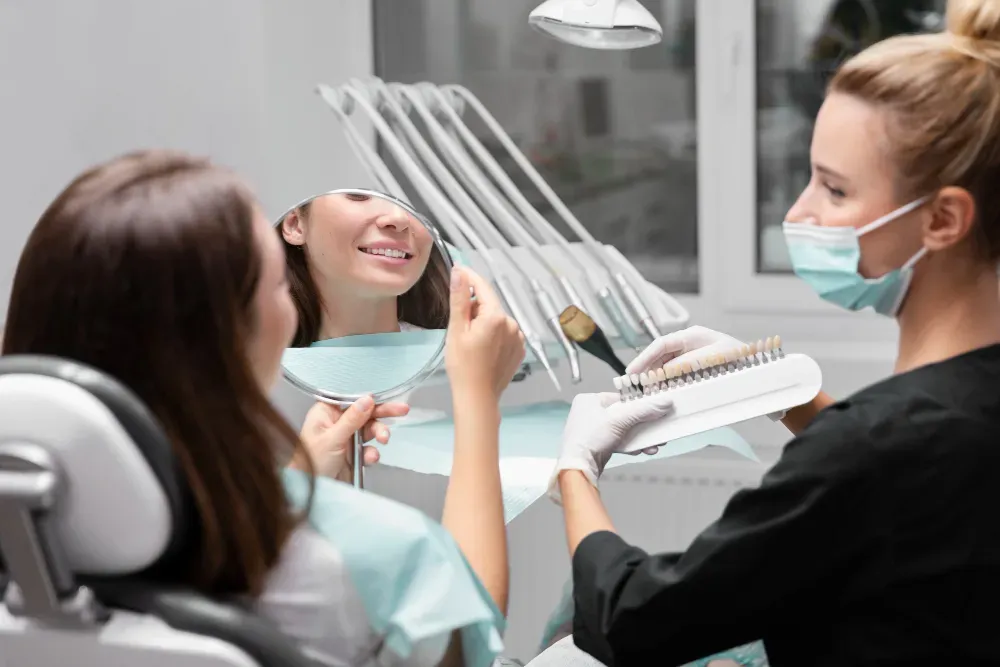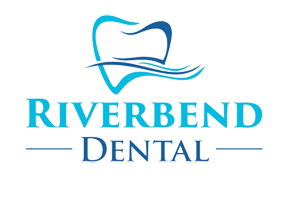Maintaining good oral health is essential for a lifetime of healthy smiles. It goes beyond just brushing your teeth twice a day – preventive dentistry involves establishing a comprehensive routine that includes proper brushing, flossing, and regular dental check-ups. By taking proactive steps to care for your teeth and gums, you can prevent common dental issues such as cavities, gum disease, and tooth loss. In this guide, we will dive into the world of preventive dentistry and provide you with tips and techniques to help you build healthy habits for a lifetime of optimal oral health. So, let’s get started on the path to a healthier smile with Riverbend Dental Centre‘s ultimate guide to preventive dentistry.
Understanding the Importance of Preventive Dentistry
Maintaining good oral health is not just about having a beautiful smile. It’s about taking care of your overall health and well-being. Preventive dentistry plays a crucial role in keeping your teeth and gums healthy for a lifetime. Here are some key reasons why preventive dentistry is so important:
Prevention is better than treatment:
By taking proactive steps to care for your teeth and gums, you can prevent common dental issues such as cavities, gum disease, and tooth loss. Preventive dentistry focuses on identifying and addressing dental problems early on before they become more serious and require extensive and expensive treatments.

Saves you money in the long run:
Regular dental check-ups and cleanings are a cost-effective way to maintain your oral health. By addressing any dental issues early on, you can avoid more complex and expensive procedures in the future. Investing in preventive dentistry now can save you a lot of money in the long run.
Maintains your overall health:
Oral health is connected to your overall health. Poor oral health has been linked to various systemic health conditions such as heart disease, diabetes, and respiratory infections. By maintaining good oral hygiene and regularly visiting your dentist, you can reduce the risk of developing these health conditions.
Boosts your self-confidence:
A healthy smile can do wonders for your self-esteem and confidence. Preventive dentistry helps you maintain a bright, white smile and address any aesthetic concerns you may have. With a healthy and confident smile, you’ll feel more comfortable and confident in social and professional situations.
Sets a good example for your family:
By practicing good oral hygiene habits and prioritizing preventive dentistry, you can set a positive example for your family. Instilling these habits in your children from a young age can help them develop a lifetime of good oral health practices.
Essential Habits for Optimal Dental Health
Maintaining optimal dental health requires a combination of good oral hygiene habits and healthy lifestyle choices. Here are some essential habits to incorporate into your daily routine:
Brushing twice a day:
Brushing your teeth at least twice a day is crucial for removing plaque and preventing tooth decay. Be sure to use a soft-bristled toothbrush and fluoride toothpaste. Brush each tooth individually using gentle, circular motions, and don’t forget to brush along the gumline and your tongue.
Flossing daily:
Flossing helps remove plaque and food particles from between your teeth and along the gumline. Use about 18 inches of floss and curve it into a C-shape around each tooth. Gently move the floss up and down, going below the gumline as well. Remember to use a fresh section of floss for each tooth.

Eating a balanced diet:
A nutritious diet is essential for healthy teeth and gums. Limit your intake of sugary foods and drinks, as they can contribute to tooth decay. Instead, focus on eating nutrient-rich foods like fruits, vegetables, dairy products, and lean proteins. These foods provide essential vitamins and minerals for strong teeth and gums.
Avoiding tobacco and excessive alcohol consumption:
Smoking and tobacco use can significantly increase the risk of gum disease, tooth loss, and oral cancer. Quitting these habits is crucial for maintaining optimal oral health. Additionally, excessive alcohol consumption can also have a negative impact on your oral health, so it’s best to drink in moderation.
Drinking plenty of water:
Water is not only important for overall health, but it also helps promote oral health. Drinking water throughout the day helps rinse away food particles and bacteria, while also stimulating saliva production, which is crucial for neutralizing acids and preventing tooth decay.
Deep Dive into Brushing Techniques and Tips
Maintaining proper brushing techniques is essential for achieving optimal dental health. While most of us brush our teeth twice a day, it’s important to ensure we’re using the correct techniques to effectively remove plaque and prevent tooth decay. Here are some deep-dive tips and techniques to help you master the art of brushing:
Choosing the right toothbrush:
Opt for a soft-bristled toothbrush with a small head. This allows for better access to hard-to-reach areas and prevents gum irritation.
Brushing technique:
Hold your toothbrush at a 45-degree angle towards your gum line. Use gentle, circular motions to clean each tooth individually. Don’t forget to brush the inner surfaces and the chewing surfaces as well. Avoid scrubbing too hard, as this can damage your tooth enamel and irritate your gums.
Duration:
Brush your teeth for at least two minutes each time. Divide your mouth into quadrants and spend about 30 seconds on each quadrant. This ensures thorough cleaning of all areas of your mouth.

Tongue brushing:
Don’t forget to brush your tongue! Plaque and bacteria can accumulate on the surface of your tongue, leading to bad breath. Gently brush your tongue using your toothbrush or a tongue scraper to remove any buildup.
Brushing frequency:
While it’s important to brush your teeth twice a day, it’s equally important not to overdo it. Brushing more than three times a day can lead to enamel erosion. Stick to brushing in the morning, before bed, and after meals if necessary.
The Power of Flossing: Its Role and Correct Method
Flossing is a crucial part of maintaining optimal oral health, yet it often gets overlooked in our daily routines. However, flossing plays a vital role in removing plaque and food particles from between our teeth and along the gumline, where toothbrush bristles can’t reach. Here’s why flossing is so powerful and how to do it correctly:
Prevents gum disease:
Flossing helps remove plaque buildup, which is a major contributor to gum disease. By removing plaque from the gumline, you can prevent gingivitis and more serious gum diseases like periodontitis.
Reduces the risk of cavities:
Flossing not only removes plaque from between your teeth but also helps prevent cavities. When left in between your teeth, plaque can lead to tooth decay, which can be painful and costly to treat.
Enhances overall oral hygiene:
Flossing is an essential step in maintaining good oral hygiene. It complements brushing by removing debris and bacteria from areas that are difficult to reach with a toothbrush alone.
Improves breath freshness:
Food particles and plaque between your teeth can contribute to bad breath. Regular flossing helps eliminate these sources of odor, leaving your breath fresh and clean.

Protects against systemic health issues:
Poor oral health has been linked to various systemic health conditions such as heart disease, diabetes, and respiratory infections. By flossing regularly, you can reduce the risk of developing these health conditions.
Final Thoughts and Motivation for a Lifetime of Smiles
Maintaining good oral health is a lifelong commitment, but it’s one that is worth every effort. By prioritizing preventive dentistry and incorporating healthy habits into your daily routine, you can enjoy a lifetime of healthy smiles. Remember, it’s not just about having a beautiful smile; it’s about taking care of your overall health and well-being.
At Riverbend Dental Centre, we are committed to providing you with the tools, resources, and guidance you need to maintain optimal oral health. From understanding the importance of preventive dentistry to mastering proper brushing and flossing techniques, we’ve covered it all in this guide.
We encourage you to take the knowledge you’ve gained from this guide and put it into practice. Make a commitment to yourself and your oral health. Remember to brush your teeth twice a day, floss daily, eat a balanced diet, and avoid harmful habits like tobacco and excessive alcohol consumption.
